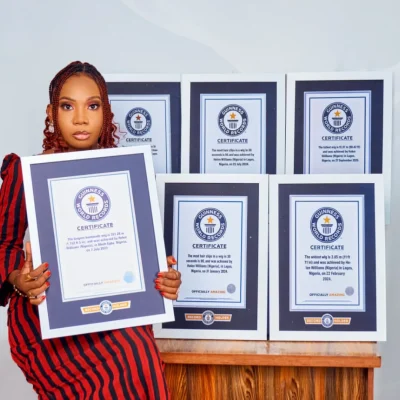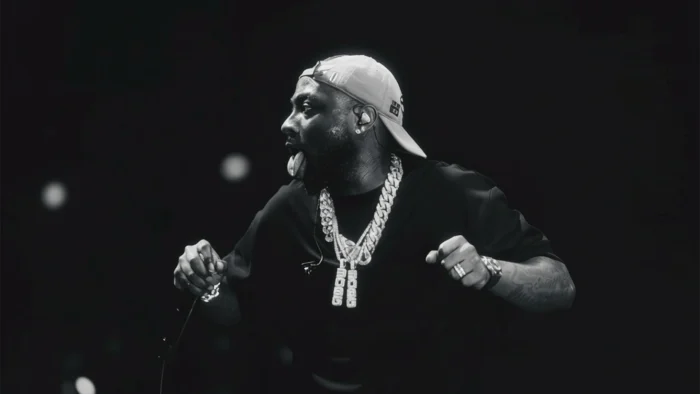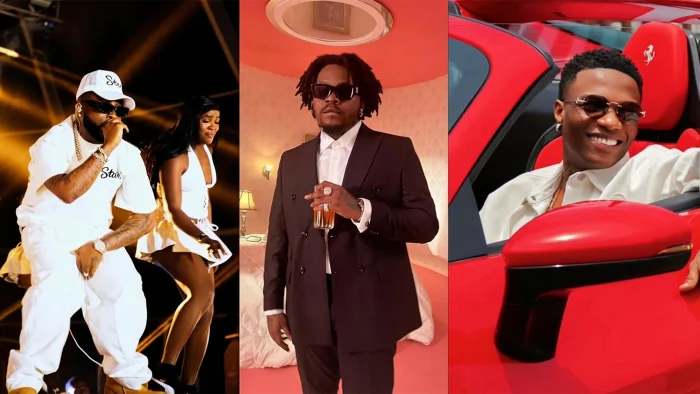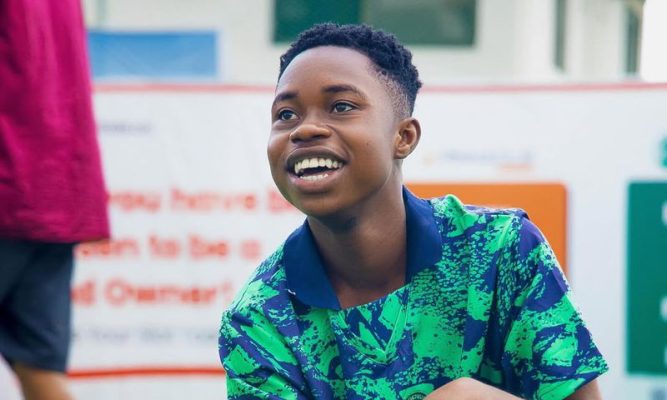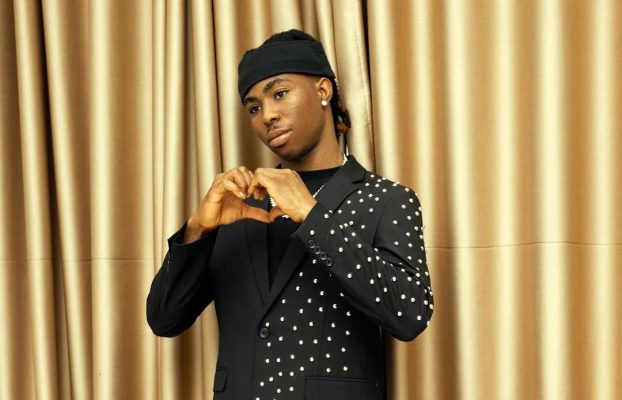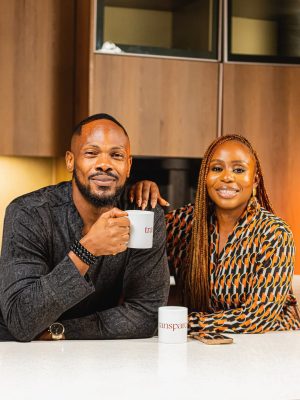
At just 26, DJ Khalipha is reshaping Nigeria’s electronic dance music scene with his pioneering genre—originally known as Mara and now rebranded as Street House. In this exclusive interview, he discusses his early passion for DJing, his creative process, and his ambitious vision for the future of Nigerian EDM.
Nigeria’s electronic dance music (EDM) scene is bustling with sub-genre inventors and pioneers like 26-year-old beatsmith DJ Khalipha who created the Mara genre, although now renamed Street House.
Essentially a fusion of Nigerian Street Pop, Electronic House, and moody Lo-fi piano chords, his distinctive sound quickly became a street favourite after its breakout in 2023. The standout track, Mara Pass Mara, which samples melancholic Chinese Guoyue music, has already amassed 2.4 million streams on Spotify.
READ ALSO: Headies returns to Lagos, celebrates, holds two editions in one year
Inspired in part by the Cruise Beat or Free Beat soundscape introduced by Nigerian producer DJ YK Mule in 2019, DJ Khalipha’s Mara genre shares similarities in its fast-paced tempo of its predecessor. However, while Cruise Beat is primarily marked by playful, humorous audio clips often drawn from films or trending videos, Mara’s emotive melodies provide a therapeutic yet energetic groove.
DJ Khalipha’s catalogue also reflects a global cultural outlook, with tracks such as Mara Drill, Violin Mara Dance, Mara Lati India, Marapiano Street Beat, and The Horbbit Mara, showcasing his diverse influences. In a bid to take his charismatic sound to the international stage, he rebranded the style as Street House late last year.
Beyond creating this new genre, DJ Khalipha has made a significant impact on Nigeria’s EDM/Street scene with his innovative House fusions and Cruise Beat mixes, many of which are infused with a multicultural vibe.
Born Habeeb Lawal Kola in Lagos, DJ Khalipha has shuttled both Lagos and Kwara states since he began his music career professionally in 2017. Initially renowned as the iPhone/Tablet DJ at Kwara State Polytechnic, he quickly expanded his skills into music production.
In this week’s edition, the self-taught independent DJ and music producer sits down with Guardian Music to take us on a tour through his alluring soundscape, unpacking his creative process, influences, and his mission to become a serial genre inventor across Nigerian music.

Tell us how you became a DJ.
I was born in Orile Iganmu, Lagos. My family moved to Ajah when I had just finished primary school. And that is where I grew up until I moved to Ilorin for my studies at the Kwara State Polytechnic. I discovered my passion for DJing in school. I disliked listening to music at regular tempos, so I downloaded the Virtual DJ software to tweak the tempos to my taste.
From there I developed a love for mixing tracks and I taught myself how to DJ by watching YouTube videos. My friends heard my mixes and encouraged me to play at school shows. I pitched to the show organisers on campus and they allowed me to play music at their events. From there I became popular as the Tablet and iPhone DJ. I later saved up and bought a laptop.
READ ALSO: 17th Headies Nominations: See Full List Here
How did you get into the EDM scene?
I started everything a few years ago. I love to create something out of nothing, and I like listening to a lot of emotional songs. I made the first Mara beat with my DJ software; it was nothing serious. I was just playing around initially, but when I saw that it sounded great, I mashed it up into a full song. I put it on Spotify and other music platforms just for fun.
That was when TikTok was also just booming in Nigeria. I also put the sound on TikTok and I later noticed that a lot of people started using it to create dance videos. My friends sent me videos of people using the videos, and they encouraged me. A week later, PocoLee dropped a freestyle on that particular beat. Someone reached out to me on his behalf and we collaborated on a version titled Obirin. That song brought me into the limelight, although I wasn’t happy that they didn’t show me in the music video despite my attending the video shoot. I had already broadcasted it to my friends and family, and I thought I would go viral with the song. However, I moved on from that experience and learned how to create beats as a music producer and not just making DJ mashups.
One day, I thought about mixing a sad vibe with a dance beat, and that’s how the Mara beat came about. Mara means “street”, but I wanted the beat to appeal to people beyond the street, including high-profile people. I created the Mara Dance Beat, by mashing up a Brazilian song, Bainá by Barbatuques, with another House music song, Madan by the UK act Haska, alongside a street sound I had produced. So, Mara is a blend of House and Street music, with a touch of emotional sounds.
Do you create these emotional sounds too?
There is what we call a MIDI (Musical Instrument Digital Interface) pack. If I like a song, I try to find the MIDI version of it, to help get its piano chord progression. Sometimes, I also sample the vocals to create something, although not using it directly. I could try to change the way the vocal sounds and make it more emotional. Often, the melody comes to me randomly, for example, while scrolling on social media, playing a video game, movie soundtracks, or phone ringtones.
Do you also like to make Cruise Beats?
I don’t make it unless I have a demand for it. For example, earlier this year, I had a high demand from people persuading me to make a Cruise Beat song from a trending audio that other popular producers hadn’t used yet. That’s how I made the Aso Mi cruise beat, to remind them that I am also dynamic with my music.
You have recently been calling your music, Street House. Why is that?
I am committed to making Mara music. However, I changed the name to Street House because the word “Mara” had started to get shadow-banned on music streaming platforms due to other people stream-farming songs uploaded with the name “Mara”. A lot of people were jumping on the Mara sound because it was trending. They didn’t really understand my vision for the music.
At some point, DJ YK Mule even switched from Cruise Beats to Mara because it was the selling sound and everyone wanted to make their money and get popular with it. At that point, I stopped feeling it. I don’t like doing things that everybody is doing. So, I had to switch the name. Also, calling it Mara made it feel local because people kept thinking I am just a street DJ, and that the music was meant for the streets only. But that was not the dream.
Now, I am more concerned with getting the music streamed a lot by people than just becoming a trending sound on TikTok. I’ve noticed that a lot more people like to listen to my music as well than just use it for dancing. That’s why I am focusing on making them more as full songs than just dance instrumentals. It’s just like House and Amapiano, which don’t need vocals to stand as songs. So, my beats deal with emotions; some deal with sadness, happiness, or motivation. I follow online comments a lot on my posts. A lot of people say that they like listening to music to relax, rest, or inspire themselves.
But your recent Street House songs aren’t as emotional as you put it.
I’ve been using too much of the emotional sound and, as I said earlier, there are more people already getting up to it. So I was trying to try something new. One of my most recent releases, Eclipse Street House, samples Russian melodies mixed with Nigerian street sounds.
What other music cultures do you listen to a lot?
I like to listen worldwide: to Indian, Russian, Spanish, Chinese, and South African music. Sometimes, I research music that is similar to what I want to sample and create. Sometimes, the DSP keeps recommending songs based on what I already listen to. I like to infuse other cultures into my music. Lately, a lot of people have been working with Funk, which is actually a Brazilian sound. Now, we have Afro Funk.
Do you make other music apart from EDM?
Yes, I make other types like Trap, Drill, Afrobeats, and Amapiano. I don’t put those out; I only create them for work. I have artists who reach out to me to create other beat types for them apart from EDM. I am also always trying to innovate. For instance, I am presently working on fusing Mara with Hip Hop, because they share similar BPMs.
Do you also play other music forms apart from EDM?
Yes, I am a very good DJ, just as I’m a good producer. I can play different types of music. I’m invited to play at shows in Lagos, a lot. I played at this popular piano party, ‘Even In The Day’, and I didn’t play EDM; I played Amapiano mostly.
Finally, what is your vision for your music?
I believe that with the kind of music I do and my creativity, I can change the way we see music, especially electronic music, in Nigeria. I’m trying to create something and be a pioneer of a particular style of music, and I feel if I don’t give up on the quest it will happen very soon.


